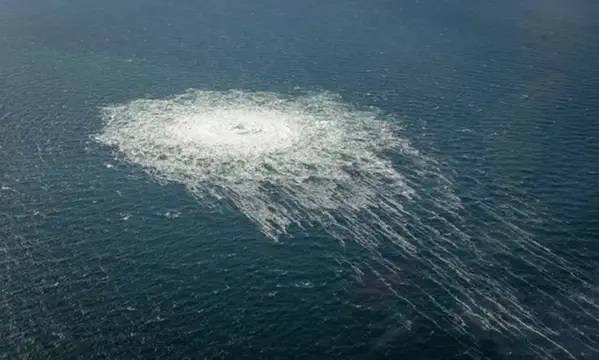
Norway's Equinor said European Union sanctions had prevented it from providing services and equipment to inspect the damaged Nord Stream gas pipelines last year, revealing for the first time why Norwegian assistance was not forthcoming.
In September, several unexplained underwater explosions ruptured the Nord Stream 1 and Nord Stream 2 pipelines, each more than 1,200-km-long, that link Russia and Germany across the Baltic Sea, sending methane gushing into the atmosphere.
"The Norwegian Ministry of Foreign Affairs has stated that work on the pipelines would be in breach of the Norwegian sanction regulations – and by extension the EU sanction regulations," Equinor said in an emailed statement to Reuters.
Norway is not part of the European Union, but is part of its single market and has applied most EU sanctions against Russia, including export controls.
"Due to the strict statutory duty of confidentiality, the Ministry of Foreign Affairs cannot comment on cases regarding the export of strategic goods, services and technology," a foreign ministry spokesperson said in a statement.
The EU Commission did not immediately reply to a request for comment.
German gas trader Uniper UNO1.DE said last month that the pipelines, able to carry 110 billion cubic meters of gas per year, could be fixed in six to 12 months, but questions remain about whether Berlin wants to restart supplies and whether they will be repaired.
The lack of Norwegian assistance in repairing the pipeline is likely to make the process more challenging and expensive.
Norway, which exports gas to Europe via offshore pipelines, has a Pipeline Repair and Subsea Intervention (PRSI) Pool which was set up to deal with ruptures and to mobilize emergency support from specialized equipment and service providers.
The industry-funded pool is administered by Equinor and its 72 members include both Nord Stream pipeline operators, Swiss-based Nord Stream AG and Nord Stream 2 AG.
In October, the system received a request from Nord Stream operators to mobilize ships and equipment to inspect the damage.
"The PRSI Pool – of which Equinor is the administrator – adheres to current legislation related to sanctions, and notified NS1 and NS2 (operators) that we were not able to do work as requested," Equinor said in its statement to Reuters.
Nord Stream AG said on Oct. 4 that it was not able to inspect the Nord Stream 1 pipeline because "the owner of the appropriately equipped survey vessel" it had chartered was still awaiting permission from the Norwegian foreign ministry.
It had told Reuters on Sept. 29 that it might engage PRSI when the repair strategy and solution had been developed. Nord Stream AG was not immediately available for comment on Wednesday.
Nord Stream 2 AG confirmed to Reuters it had filed a request with PRSI Pool and that it was rejected.
"In response to the incident and as a full member of the PRSI Pool, Nord Stream 2 AG requested PRSI's support for the inspection of the damage locations in the Swedish and Danish exclusive economic zones in the Baltic Sea. The request was rejected," it said in a statement.
'TECHNOGENIC CRATERS'
Unable to receive assistance from Norway, Gazprom-controlled Nord Stream AG chartered a Russia-flagged vessel to conduct surveys at the blast sites in the Swedish waters and said it had found "technogenic craters" on the seabed.
Sweden and Denmark, which carried out separate investigations, concluded that the pipelines were blown up deliberately without publicly blaming anybody.
Meanwhile, Moscow and the West accused each other for the blasts, without providing evidence.
Nord Stream 1 was idle at the time of the explosions because of technical issues complicated by Western sanctions on Russia.
Nord Stream 2 was completed in September 2021, but was never put into operation as Berlin shelved its certification days before Moscow sent troops into Ukraine in February 2022.
Map: Leaks reported from Russian Nord Stream pipelines https://tmsnrt.rs/3dTx8JE
(Reporting by Nerijus Adomaitis and Vladimir Soldatkin; Additional reporting by Phil Blenkinsop; Editing by Alexander Smith and Diane Craft)